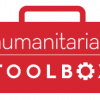Related Content
 |
Important Questions to Ask Yourself before Committing to Agile A head full of indecision is a common occurrence as you inch closer and closer toward a transition to the agile methodology, so in order to lessen this fear and push forward with a clearer mind, you need to ask yourself a few important questions. |
|
 |
The Downside of Certainty It's when you're most certain that you understand a situation that you're most likely to have misunderstood it. Whether you're dealing with customers or coworkers, it never hurts to seek additional information. After some clarification, you may find that you weren't so certain after all. |
|
 |
Stronger, Faster Quality with Simple, Focused Checks Imagine focusing on prioritized business requirements at the software layer closest to where those business items are implemented. Writing just one check—that is, a programmed verification—per business requirement makes for simple, focused checks, supporting stronger, faster quality around the team. |
|
 |
Building an Effective Lean Testing Strategy Lean testing strategies can help QA teams effectively mitigate wasted resources and ensure that they are giving each project the attention it deserves. Sanjay Zalavadia details some strategies QA teams should implement in order to create an effective lean testing practice for their operations. |
|
 |
The Win-Win Benefit of Expressing Appreciation People are less likely to express thanks or appreciation at work than anyplace else. But studies suggest that employees who feel appreciated are more productive and loyal, so it's worth making an effort. The intriguing bit? It's a win-win experience—when you appreciate someone, you feel good, too. |
|
 |
Testers Donate Their Skills to Save Lives with Humanitarian Toolbox When natural disasters strike, technology can streamline relief efforts. The charity Humanitarian Toolbox creates apps and maintains a “toolbox” of software and solutions for disaster aid organizations all over the world. Testers at STARWEST will donate their time and talents to the cause. |
|
 |
When I Really Do Break Software Pamela Gillaspie has been experimenting with actually breaking software: installing or operating respectable software in a way that renders it unusable. She says testing beyond what your product is strictly responsible for can save your company many support cases—and the goodwill of your users. |
|
 |
Scalability of Tests—A Matrix Hans Buwalda highlights the scalability of unit, functional, and exploratory tests—the three kinds of tests used to verify functionality. Since many automation tools and strategies traditionally focus on functional testing, Hans provides some strategies to make functional testing more manageable. |







